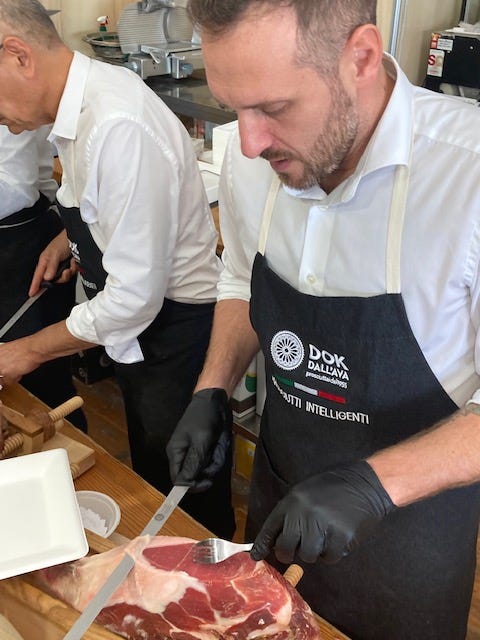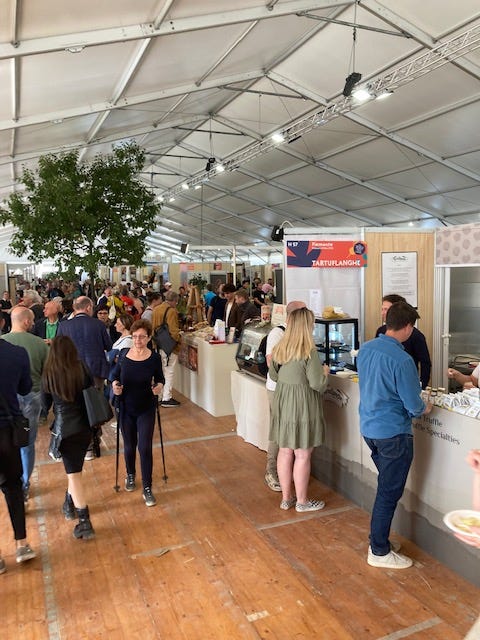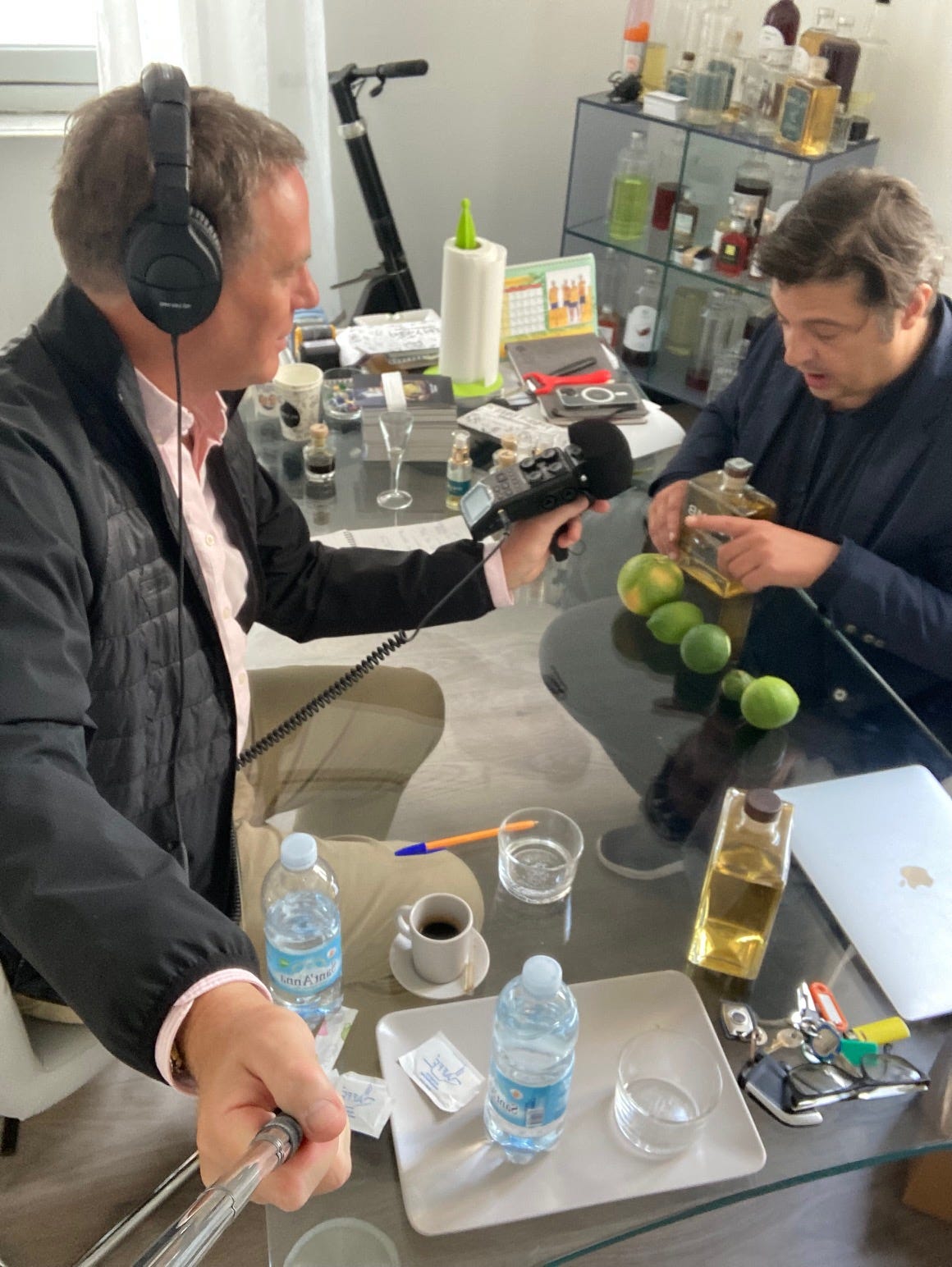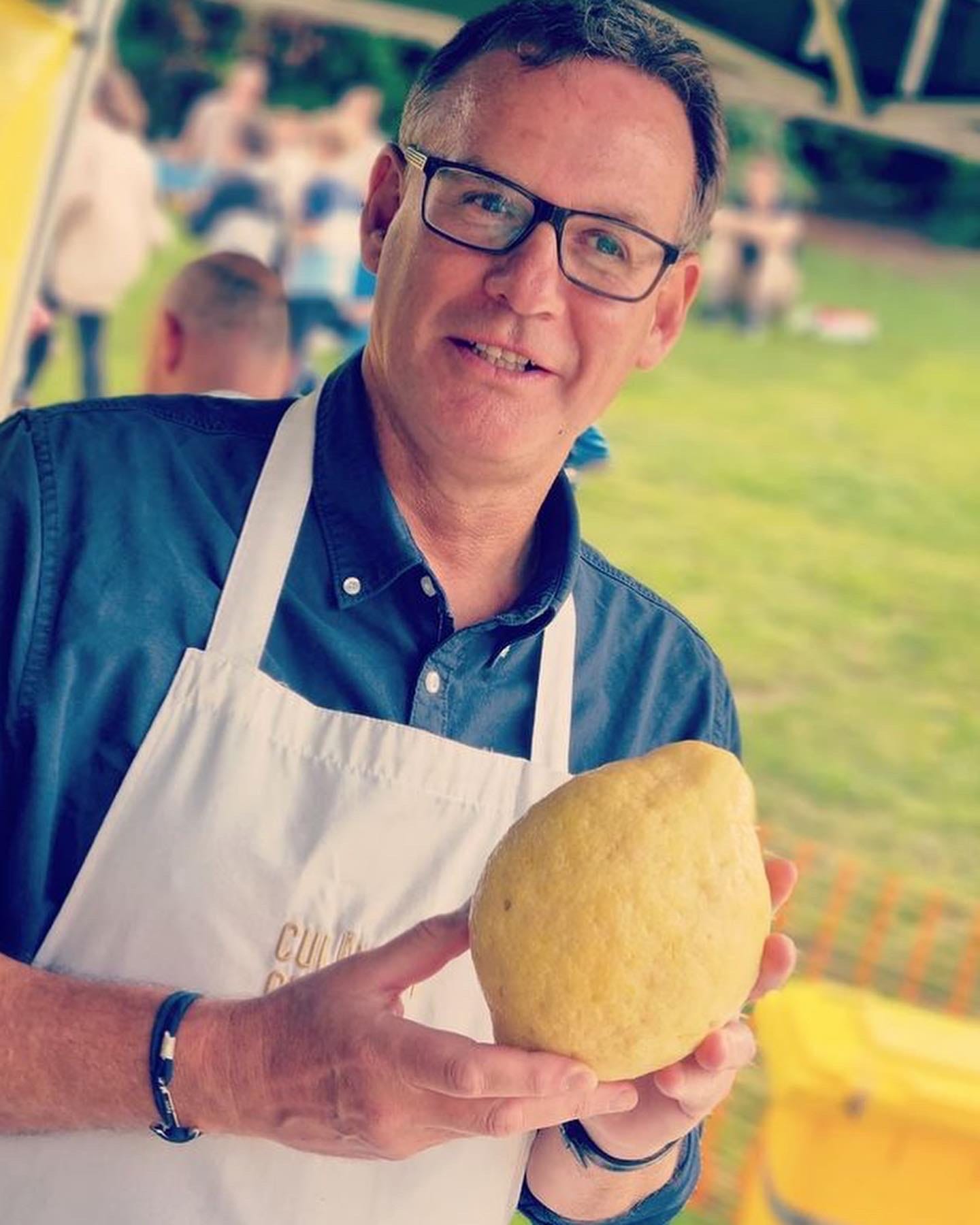Terra Madre, A brief introduction
Terra Madre Salone del Gusto is a huge global gathering of food producers, activists and indigenous peoples held every two years in Turin, Italy. It’s popular with people seeking to create a world where food supply is central to local communities and building healthy lives for the planet, humans and those with whom we share the earth.
If this sounds a bit preachy, it’s not meant to be. Terra Madre is held under the umbrella of Slow Food International, the global farming and food activist organisation and offers dozens of market stalls, talks and workshops. But the event is far more than this. It’s key to building a global community of change-makers.
For example, while attending the event, I listened to presentations about food systems and urbanisation. We learnt about how ocean-going trading vessels sailing into the heart of London for a couple of centuries was one factor that ultimately led to Brexit. For centuries, the British have rushed around the world sourcing raw materials and manufactured and finished products. Indeed, it can be argued that Britain sees the world as simply somewhere to trade with rather than developing a more nuanced and equal partnership. Read Carolyn Steel’s books, especially Sitopia, to get a more complete understanding of these complex issues.
International gatherings such as Terre Madre allow those lucky enough to attend to share experiences and learnings and grasp a first-hand understanding of how others live and work. While at one debate, I stood in a queue with two Mexicans, a Venezuelan and a lawyer/activist from Trinidad & Tobago. Later that day, I had dinner with two Peruvians, an Icelander, a German, an Italian and a Frenchman. It’s gatherings such as Slow Food that we are able to gain a better understanding the different political and economic pressures we all live under and the positive changes they are helping to foster.
I am a 2019 graduate student from the University of Gastronomic Sciences in Pollenzo, about an hour by train south of Turin and (albeit hands-off) part of the Slow Food organisation. It was here that I learnt about food systems, sustainability, culture, food as memory and how ingredients and recipes evolve and travel around the world. More than ever, climate change impacts how and where we grow our food. Billions of people now live with insufficient nutrition or too much and suffer ill-health and obesity. It’s time for all of us to demand better - from ourselves, Big Food and Big Ag companies, supermarkets and our governments. Slow Food’sTerra Madre inspires change and helps us map out good, clean and fair futures.
For more information on Slow Food International, click here.
For more about Terra Madre 2022, click here.
To buy Carolyn Steel’s books, click here.
On film at Terra Madre 2022 (Youtube)
Talk a walk around Terra Madre 2022 (Youtube)
Over the five days of Terra Madre, there are dozens of tastings, workshops, conferences, cooking demos and informal, serendipitous meetings. To give a flavour of the range of talks and workshops, here are some examples of organised activities that were scheduled for 3.30pm, Saturday, September 24.
The Wonderful World of Algae
Exploring how the thousands of varieties of edible algae from the coastlines of Ireland to Japan can be cultivated, harvested and dried. Seaweed has nourished humans for thousands of years, and many regard them as a resource for the future.
Reforestation is Regeneration
Italian coffee giant Lavazza is working with the ministry of the environment in Peru and indigenous communities, ‘guardians of the forest’ to reforest areas of the Amazon. They are planting trees such as the Brazilian nut, whose fruit can be marketed and sold to support local communities.
Together for Slow Food Food Communities in Ukraine
As the brutal war in Ukraine claims many civilian lives and is wrecking the country’s economy, local members of the Slow Food communities are tending fields and risking their lives to take care of their animals, crops and communities. Slow food International has mobilised its network to support them and ‘will continue to stand by them. Speakers include Marta Messa, Slow Food Secretary General; Yulila Pitenko, Slow Food Ukraine co-ordinator, and Katerina Tarasenko, goat farmer and cheesemaker from Transcarpathia.
PLAMB
While in Turin, I interviewed Vincenzo Stirparo, an Italian engineer born in the southern region of Calabria, about Plamb, a spirit made with five citrus fruits - pink grapefruit, orange, tangerine, bergamot and lemon. The drink is made to a secret recipe shared by his Aunt Yolanda, who has made the liquor in her home kitchen for decades. The citrus fruits are grown on an organic farm in Calabria and distilled in Cuneo, Piedmont, in the north of Italy and a couple of hours southwest of Turin.
A full story will be told in an upcoming issue of The Lemon Grove newsletter. I also recorded a conversation that will be included in one of the first editions of our new podcast, The Life Lemons Give You.
In the meantime, here are a couple of images to whet your appetite.
Thank you for reading The Lemon Grove newsletter.
Like this newsletter? Please forward it to a few people or share on social media. It really helps! New subscribers can sign up by clicking the link below.
Thank you.
If you enjoyed this post, please click on the little ❤️ below ⬇️.
Bruce McMichael
Writer, Podcaster, Educator
Website: www.thelemongrove.net
Twitter: @lemonbites
Facebook: @lemongrovesocial
Instagram: @lemongrovepics
Disclosure: I am an affiliate of Bookshop.org








